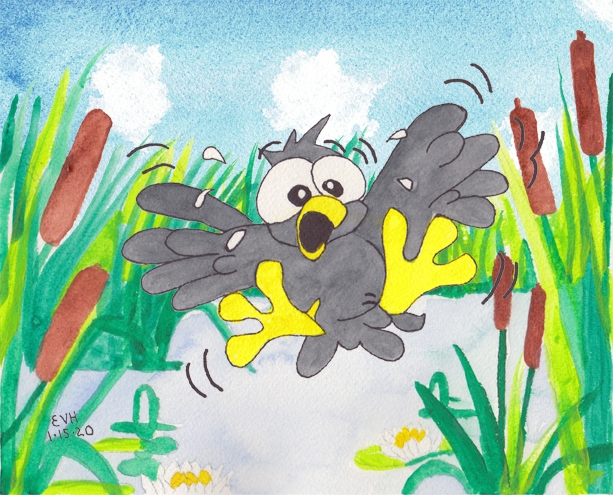
Jataka 204
Vīraka Jātaka
Vīraka the Strong
as told by Eric Van Horn
originally translated by William Henry Denham Rouse, Cambridge University
originally edited by Professor Edward Byles Cowell, Cambridge University
This is another story about Devadatta. Just as the story says, Devadatta tried to represent himself as being on the same level as the Buddha. That did not work out very well.
“Oh have you seen.” The Master told this story while he was living at Jetavana. It is about impersonating the Buddha.
When the Elders had gone with their followers to visit Devadatta, the Master asked Sāriputta what Devadatta had done when he saw them. (Devadatta once convinced some of the Buddha’s young monks to join him. Sāriputta and Moggallāna convinced them to return. [Cv vii]) The reply was that he had impersonated the Buddha. The Master rejoined, “Not only now has Devadatta impersonated me and thereby come to ruin. He did just the same before.” Then, at the Elder’s request, he told this story from the past.
Once upon a time, when Brahmadatta reigned as King in Benares, the Bodhisatta became a marsh crow. He lived by a certain pool. His name was Vīraka the Strong.
A famine arose in Kāsi. Men could not spare food for the crows, nor could they make offerings to goblins and snakes. One by one the crows left the famine-stricken land, and they left for the woods.
A certain crow named Saviṭṭhaka who lived at Benares, took his lady crow with him and went to the place where Vīraka lived, making his home beside the same pool.
One day this crow was looking for food around the pool. He saw how Vīraka went down into it and made a meal of some fish. Afterwards he came up out of the water and stood drying his feathers. “Under the wing of that crow,” he thought, “plenty of fish are to be gotten. I will become his servant.” So he approached Vīraka.
“What is it, sir?” Vīraka asked.
“I want to be your servant, my lord!” was the reply.
Vīraka agreed and from that time on Saviṭṭhaka was his servant. And from that time Vīraka used to eat enough fish to keep him alive. The rest he gave to Saviṭṭhaka. And when Saviṭṭhaka had eaten enough to keep him alive, he gave what was left over to his wife.
After a while pride came into Saviṭṭhaka’s heart. “This crow,” he said, “is black and so am I. In eyes and beak and feet, too, there is no difference between us. I don’t want his fish. I will catch my own!” So he told Vīraka that in the future he intended to go down to the water and catch fish himself. Then Vīraka said, “Good friend, you do not belong to a tribe of such crows that are born to go into water and catch fish. Don’t destroy yourself!”
But in spite of this attempt to dissuade him, Saviṭṭhaka did not take the warning to heart. Down he went to the pool, down into the water, but he could not make his way through the weeds and come out again. There he was, entangled in the weeds, with only the tip of his beak appearing above the water. And not being able to breathe, he perished there beneath the water.

Figure: Not Much to Crow About
When his mate realized that he was missing, she went to Vīraka to ask about him. “My lord,” she asked, “Saviṭṭhaka is nowhere to be seen. Where is he?” And as she asked him this, she repeated the first stanza:
“Oh have you seen Saviṭṭhaka, Oh Vīraka, have you seen
My sweet-voiced mate whose neck is like the peacock in its sheen?”
When Vīraka heard it, he replied, “Yes, I know where he is gone,” and he recited the second stanza:
“He was not born to dive beneath the wave,
But what he could not do he needs must try.
So the poor bird has found a watery grave,
Entangled in the weeds and left to die.”
When the lady crow heard it, weeping, she returned to Benares.
After this discourse was ended, the Master identified the birth: “Devadatta was Saviṭṭhaka, and I was Vīraka.”
